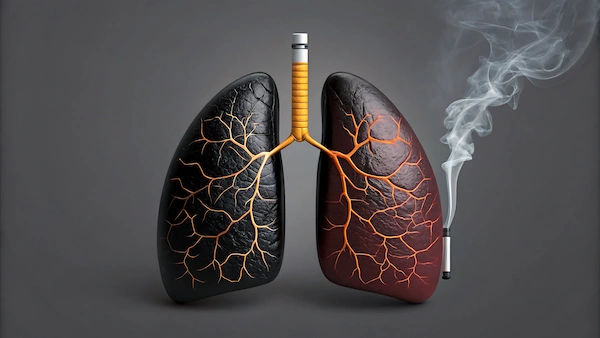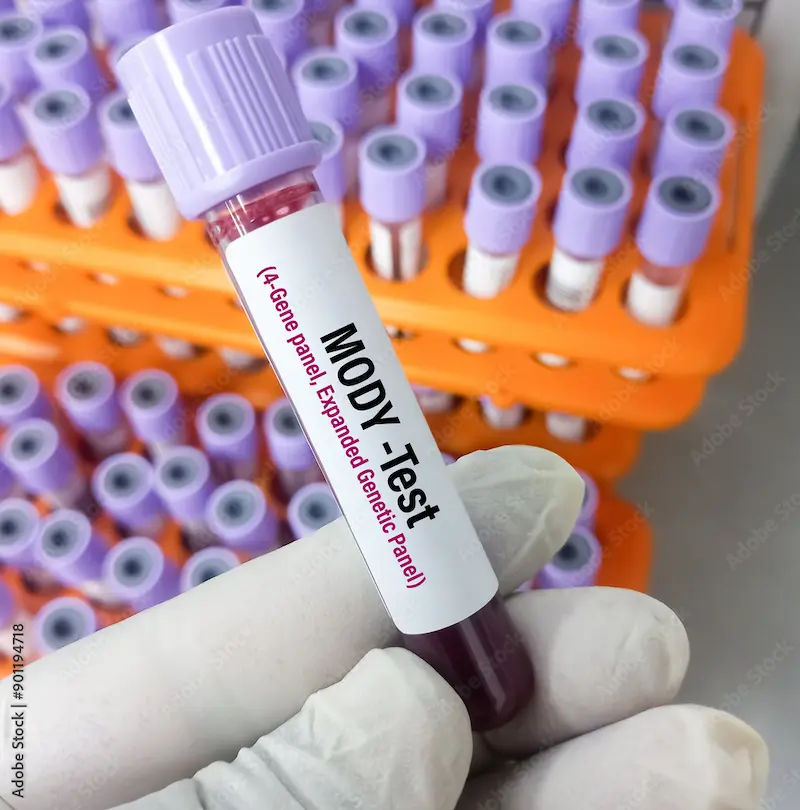Headache Prevention: Your Guide to Causes and How to Stop Them
Discover the causes, triggers, and prevention strategies for headaches. Learn how to manage tension headaches, migraines, and more with practical lifestyle tips.

Written by Dr. J T Hema Pratima
Reviewed by Dr. Shaik Abdul Kalam MD (Physician)
Last updated on 13th Jan, 2026

Introduction
That familiar, throbbing pressure behind your eyes or the dull, constant ache gripping your skull, headaches are an almost universal human experience. But while reaching for a pain reliever might offer temporary respite, understanding the root cause is the true key to long-term relief. This article delves deep into the complex world of headaches, moving beyond mere symptom management to explore proactive prevention. We'll break down the different types of headaches, from common tension headaches to debilitating migraines, and identify their most common triggers. More importantly, we will provide a practical, actionable guide on headache prevention strategies you can integrate into your daily life. Whether you experience occasional discomfort or chronic pain, this comprehensive guide aims to empower you with the knowledge to take control of your head health and reduce the frequency and intensity of your episodes.
Understanding the Different Types of Headaches
Not all headaches are created equal. The first step toward effective headache prevention is identifying which type you're dealing with. Medically, headaches are categorised as either primary or secondary.
Primary Headaches: When the Headache Is the Condition
Primary headaches are standalone illnesses caused by overactivity of or problems with pain-sensitive structures in your head. They are not a symptom of an underlying disease.
Tension-Type Headaches: The Band of Pressure
The most common type of headache, tension headaches often feel like a tight band of pressure around your forehead or at the back of your head and neck. They are typically caused by muscle contractions in these areas, often linked to stress, poor posture, anxiety, or fatigue. The pain is usually mild to moderate and doesn't typically prevent daily activities.
Migraine Headaches: More Than Just a Bad Headache
Migraines are a neurological condition characterised by recurrent, intense, and throbbing pain, usually on one side of the head. They are often accompanied by nausea, vomiting, and extreme sensitivity to light and sound. Some people experience an "aura" before the pain begins, visual disturbances like flashing lights or zigzag patterns. Common migraine triggers include hormonal changes, specific foods, bright lights, and strong smells.
Cluster Headaches: The Most Severe and Rare
Cluster headaches are less common but extremely painful. They occur in cyclical patterns, or "clusters," with multiple headaches happening daily over weeks or months, followed by remission periods. The pain is severe, burning, or piercing and is always located behind or around one eye. They can cause redness, tearing, and nasal congestion on the affected side.
Secondary Headaches: A Symptom of an Underlying Issue
Secondary headaches are a symptom of an underlying health condition that activates the pain-sensitive nerves of the head. This category includes sinus headaches from inflammation, dehydration headaches, medication-overuse headaches (caused by frequent use of pain relievers), and headaches related to more serious conditions like head injury, blood clots, or infections. Identifying and treating the root cause is crucial here.
The Common Culprits: What Triggers Your Headache?
Understanding your personal triggers is the cornerstone of headache prevention. Triggers are highly individual, but they often fall into a few key categories.
Lifestyle and Environmental Triggers
• Stress: The most common reported trigger for both tension headaches and migraines.
• Sleep Changes: Both lack of sleep and oversleeping can provoke headaches.
• Poor Posture: Straining neck and shoulder muscles while working at a desk or looking at a phone.
• Strong Smells: Perfumes, chemicals, and smoke are common migraine triggers.
• Weather Changes: Shifts in barometric pressure, humidity, or extreme temperatures.
• Eye Strain: From prolonged screen time without breaks.
Dietary Triggers
• Alcohol & Caffeine: Red wine is a famous trigger, and both caffeine consumption and withdrawal can cause headaches.
• Aged Cheeses & Processed Meats: Contain tyramine and nitrates, which are known triggers.
• Artificial Sweeteners: Aspartame is a common culprit.
• Skipped Meals: Low blood sugar from not eating can be a powerful trigger.
• MSG (Monosodium Glutamate): A flavour enhancer found in many processed foods.
Hormonal and Health-Related Triggers
Fluctuations in oestrogen, particularly in women, are a significant trigger. Many women experience headaches related to their menstrual cycle, pregnancy, or menopause. Other health issues like dehydration, high blood pressure, or sinus infections can also lead directly to secondary headaches.
Proactive Prevention: How to Stop Headaches Before They Start
Prevention is better than cure. By making consistent lifestyle adjustments, you can significantly reduce the frequency of your headaches.Consult a Specialist for the best advice
Master Your Lifestyle; Sleep, Stress, and Routine
• Establish a Sleep Schedule: Go to bed and wake up at the same time every day, even on weekends. Aim for 7-8 hours of quality sleep.
• Manage Stress: Incorporate daily relaxation techniques. This could be yoga, meditation, deep-breathing exercises, or even a short walk in nature. Stress management is non-negotiable for headache prevention.
• Maintain Good Posture: Ensure your workspace is ergonomic. Take frequent breaks to stretch your neck and shoulders.
Dietary Adjustments for Headache Prevention
• Stay Hydrated: Drink plenty of water throughout the day. Dehydration is a primary cause of headaches.
• Keep a Food Diary: Track what you eat and when headaches occur to identify your personal dietary triggers.
• Eat Regular Meals: Don't skip meals to maintain stable blood sugar levels.
• Limit Trigger Foods: Once identified, try to avoid or limit foods like aged cheeses, processed meats, and excessive caffeine.
The Role of Hydration and Exercise
Regular, moderate aerobic exercise (like brisk walking, swimming, or cycling) can reduce the frequency and intensity of migraines by relieving stress and promoting the release of endorphins, the body's natural painkillers. Just be sure to warm up gradually, as sudden, intense exercise can sometimes trigger a headache.
When to Seek Professional Help: Warning Signs
While most headaches are benign, some can signal a serious medical condition. It is crucial to consult a doctor if your headache:
• Is sudden and extremely severe ("the worst headache of your life").
• Is accompanied by fever, stiff neck, confusion, seizures, double vision, or numbness.
• Begins after a head injury.
• Worsens significantly over days or changes in pattern.
• First occurs after the age of 50.
If your headaches are frequent, interfere with your life, or if over-the-counter medications aren't effective, it's time to seek professional guidance. If your condition does not improve after trying these methods, book a physical visit to a doctor with Apollo24|7 for further evaluation. They can help diagnose the type of headache and recommend a tailored treatment or prevention plan, which may include prescription medications.
Conclusion
Living with recurrent headaches can be draining, but it's important to remember that you are not powerless. By moving from a reactive to a proactive approach, you can reclaim control. This journey starts with awareness, understanding your unique headache type and personal triggers. From there, the consistent application of lifestyle strategies, from stress management and hydration to dietary mindfulness and regular sleep, forms your first and most powerful line of defence. While this guide provides a strong foundation, remember that professional medical advice is invaluable for persistent issues. Listen to your body, be patient with the process of identifying triggers, and take the steps today that will lead to more pain-free days tomorrow.Consult a Specialist for the best advice
Consult a Specialist for the best advice

Dr Suseela
General Physician
5 Years • MBBS
Bengaluru
Apollo Medical Center, Marathahalli, Bengaluru

Dr. Rajib Ghose
General Physician/ Internal Medicine Specialist
25 Years • MBBS
East Midnapore
VIVEKANANDA SEBA SADAN, East Midnapore

Dr. Uddalak Chakraborty
Neurologist
8 Years • MBBS, MD(GENL.MED.),DM(NEUROLOGY)
Kolkata
MCR SUPER SPECIALITY POLY CLINIC & PATHOLOGY, Kolkata

Dr. Ashita Kuruvilla
General Practitioner
7 Years • MBBS
Kolkata
KVC CLINIC, Kolkata

Dr. Debdatta Pati
Psychiatrist
18 Years • MBBS, DPM, MD (PSYCHIATRY)
Kolkata
MCR SUPER SPECIALITY POLY CLINIC & PATHOLOGY, Kolkata
Consult a Specialist for the best advice

Dr Suseela
General Physician
5 Years • MBBS
Bengaluru
Apollo Medical Center, Marathahalli, Bengaluru

Dr. Rajib Ghose
General Physician/ Internal Medicine Specialist
25 Years • MBBS
East Midnapore
VIVEKANANDA SEBA SADAN, East Midnapore

Dr. Uddalak Chakraborty
Neurologist
8 Years • MBBS, MD(GENL.MED.),DM(NEUROLOGY)
Kolkata
MCR SUPER SPECIALITY POLY CLINIC & PATHOLOGY, Kolkata

Dr. Ashita Kuruvilla
General Practitioner
7 Years • MBBS
Kolkata
KVC CLINIC, Kolkata

Dr. Debdatta Pati
Psychiatrist
18 Years • MBBS, DPM, MD (PSYCHIATRY)
Kolkata
MCR SUPER SPECIALITY POLY CLINIC & PATHOLOGY, Kolkata
More articles from General Medical Consultation
Frequently Asked Questions
1. What is the fastest way to get rid of a headache without medicine?
Applying a cold compress to your forehead or the back of your neck can numb the pain and reduce inflammation. For tension headaches, a warm compress on the neck or shoulders can relax tight muscles. Resting in a dark, quiet room, practising deep breathing, and sipping water are also effective non-pharmacological methods for headache relief.
2. Can dehydration cause headaches every day?
Yes, chronic mild dehydration is a very common cause of daily, low-grade tension headaches. If you're not drinking enough fluids consistently, you may experience a near-constant headache. Aim for at least 8 glasses of water a day and more if you are active or in a hot climate.
3. What foods help prevent migraines?
While triggers vary, some foods are generally considered helpful. Magnesium-rich foods like spinach, almonds, and avocados may help, as magnesium deficiency is linked to migraines. Omega-3 rich foods like fatty fish (salmon) have anti-inflammatory properties. Ginger is also known for its anti-nausea and anti-inflammatory effects
4. How can I tell if my headache is a migraine?
Migraines are typically characterised by moderate to severe throbbing pain, often on one side of the head. They are usually accompanied by other symptoms like nausea, vomiting, and sensitivity to light and sound. If your headaches disable you and are associated with these symptoms, it's likely a migraine.
5. When is a headache a sign of something serious?
You should seek immediate medical attention if a headache is sudden and explosive in intensity, is accompanied by a fever, stiff neck, confusion, slurred speech, or weakness on one side of the body, or if it follows a head injury. These could be signs of a stroke, aneurysm, or meningitis.




